G4G Celebration of Mind 2021 October
Glen Whitney
studioinfinity.org/pintegons
G4G Celebration of Mind 2021 October
Glen Whitney
studioinfinity.org/pintegons
Joint work with Alissa Crans
 |
 |
 |
 |
 |
 |
 |
 |
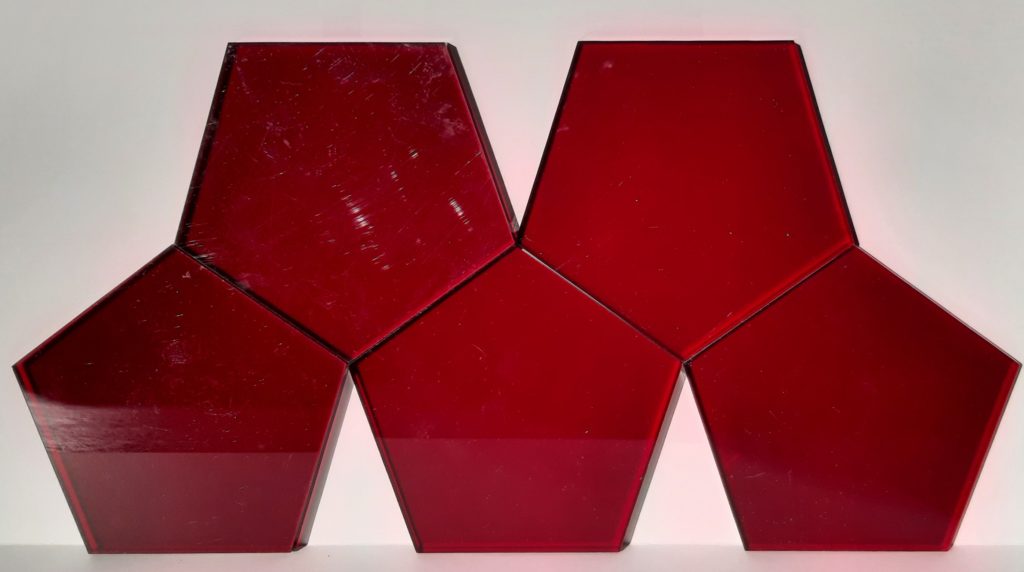
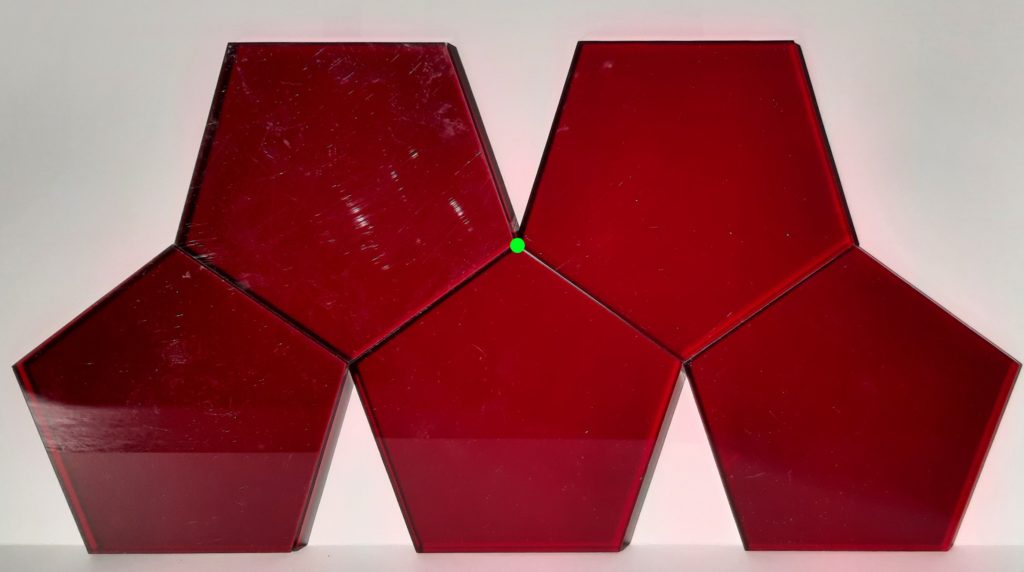
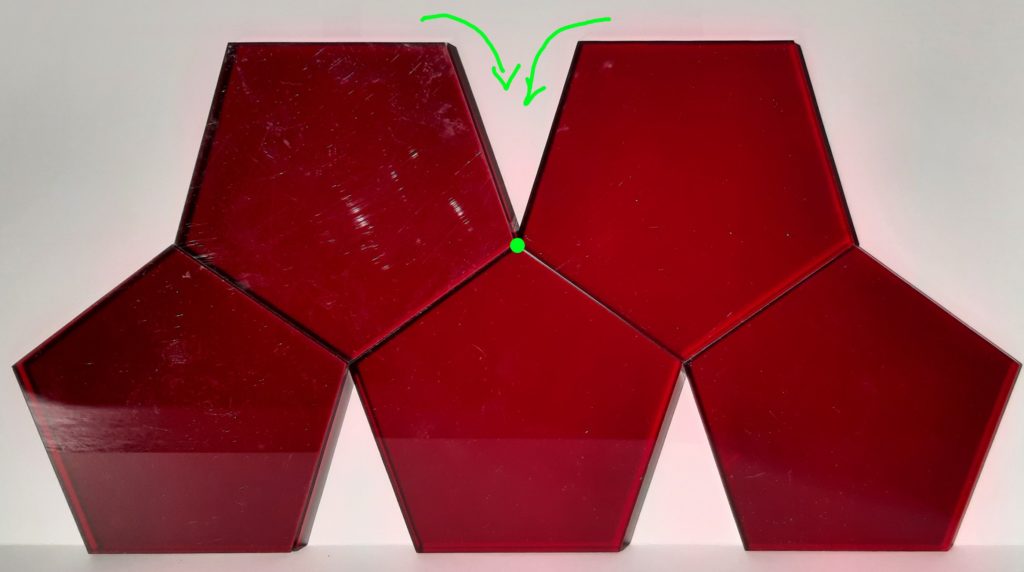

image from the Toledo Museum of Art
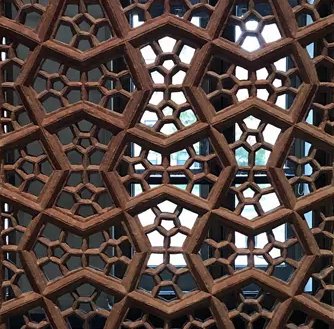
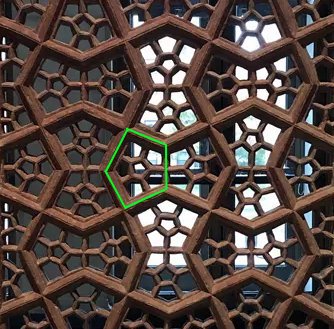
instead of insisting that our pentagons are regular, allow them to be merely convex
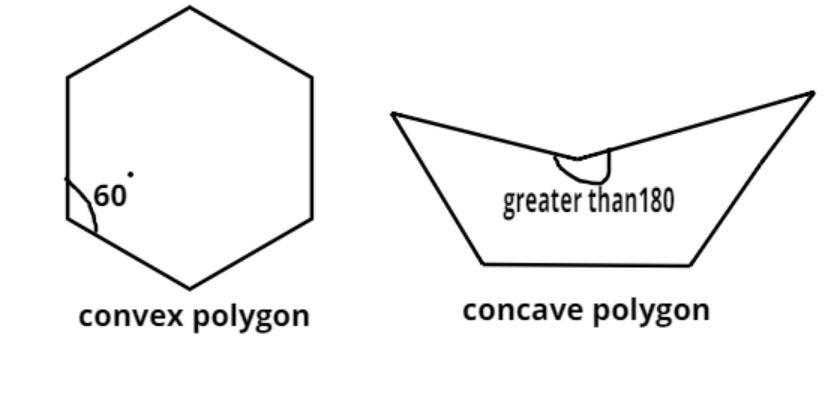



images from ‘kjo’ on math.stackexchange.com
 |


 |
 |
 |
 |
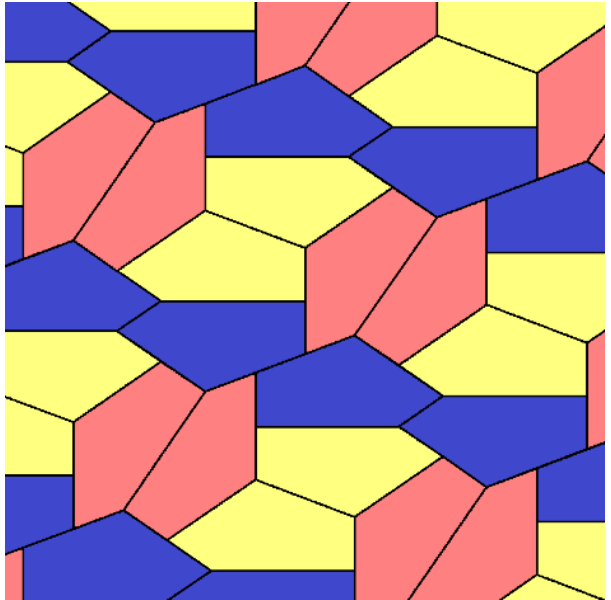 |
 |
 |
 |
 |
• We’re looking for integer-sided pentagons in those families

• We’re looking for pintegons in those families


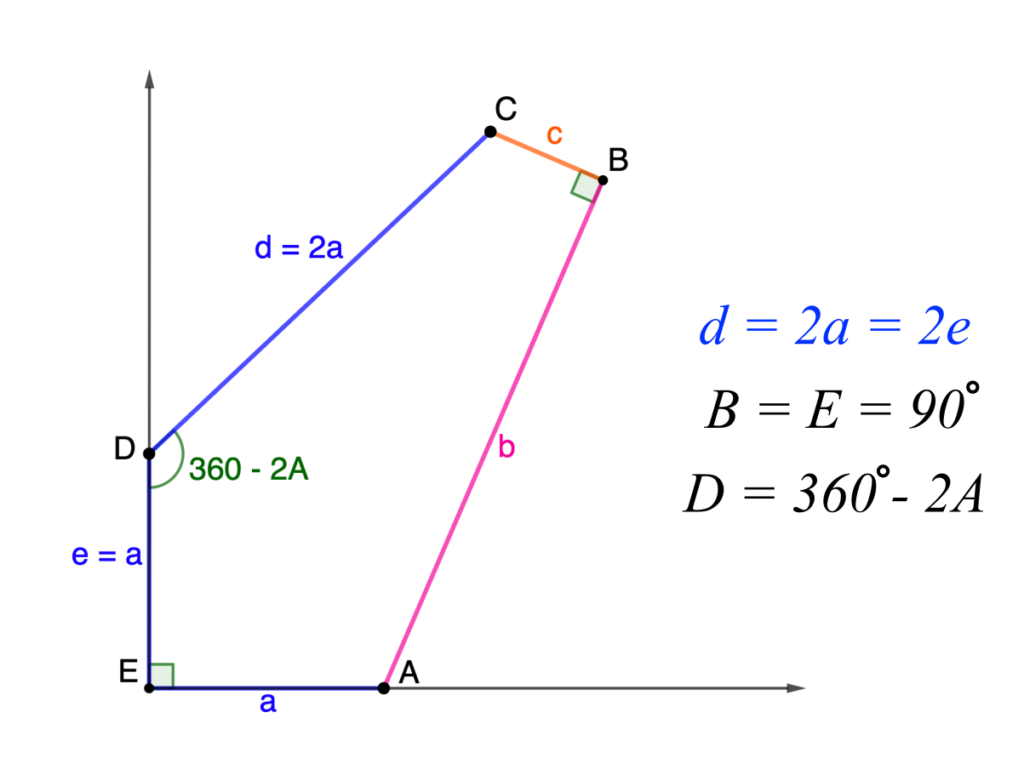
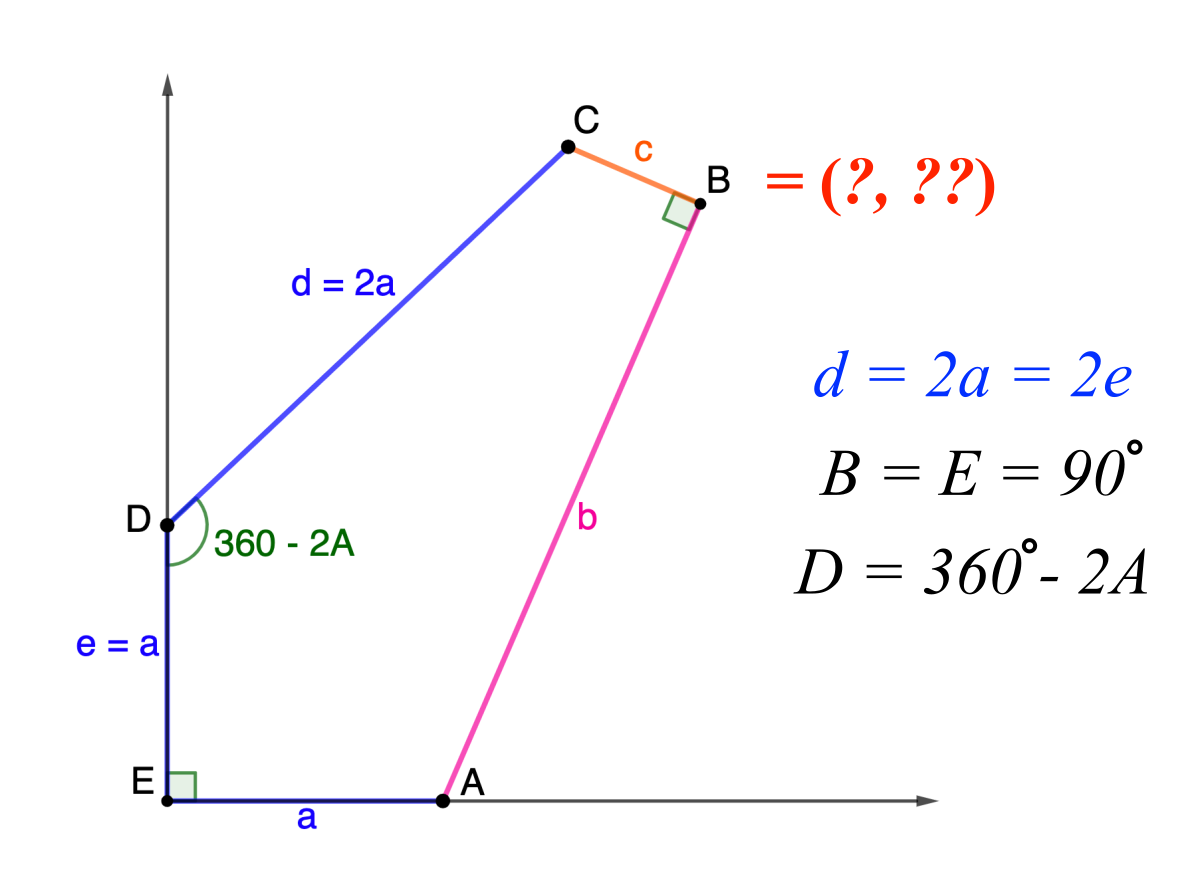
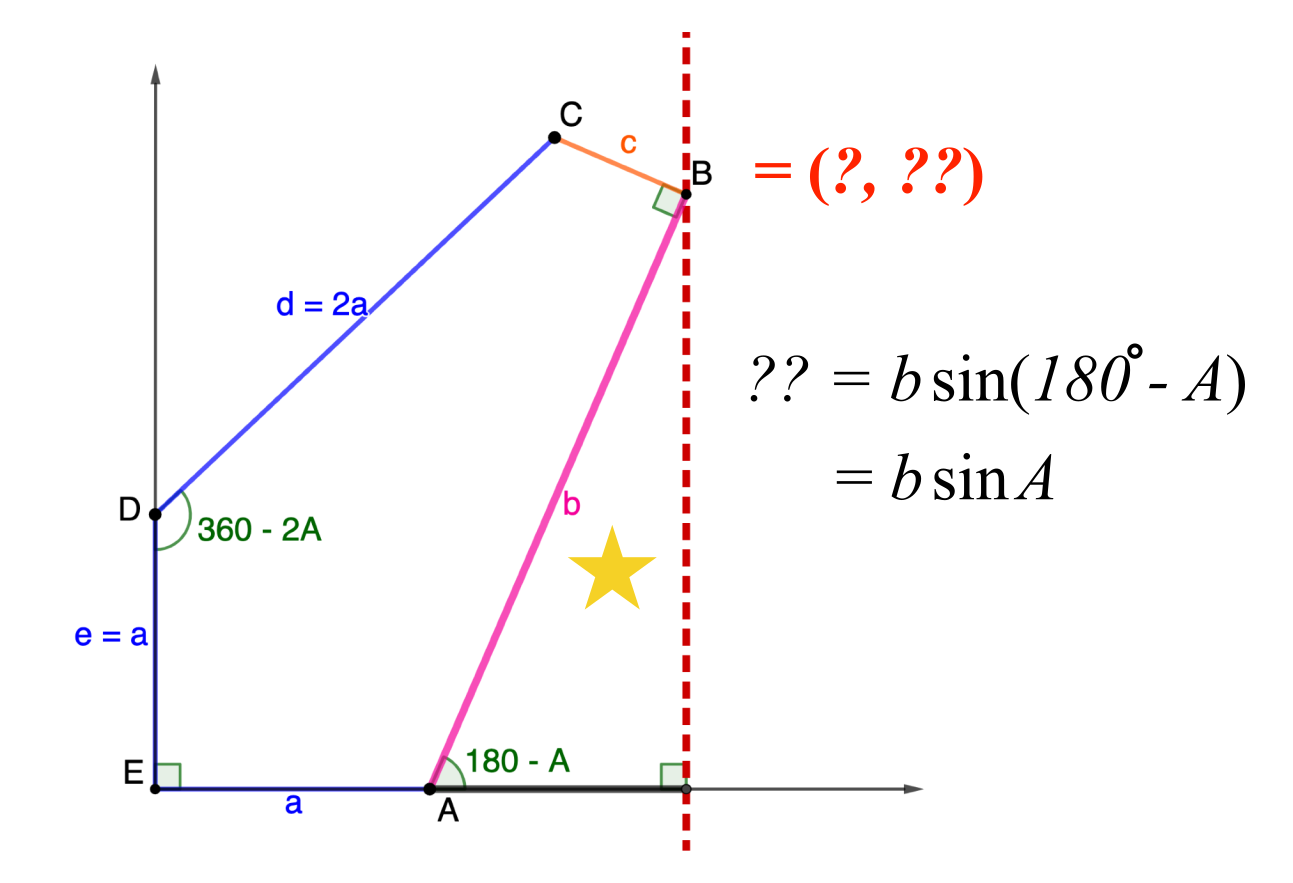

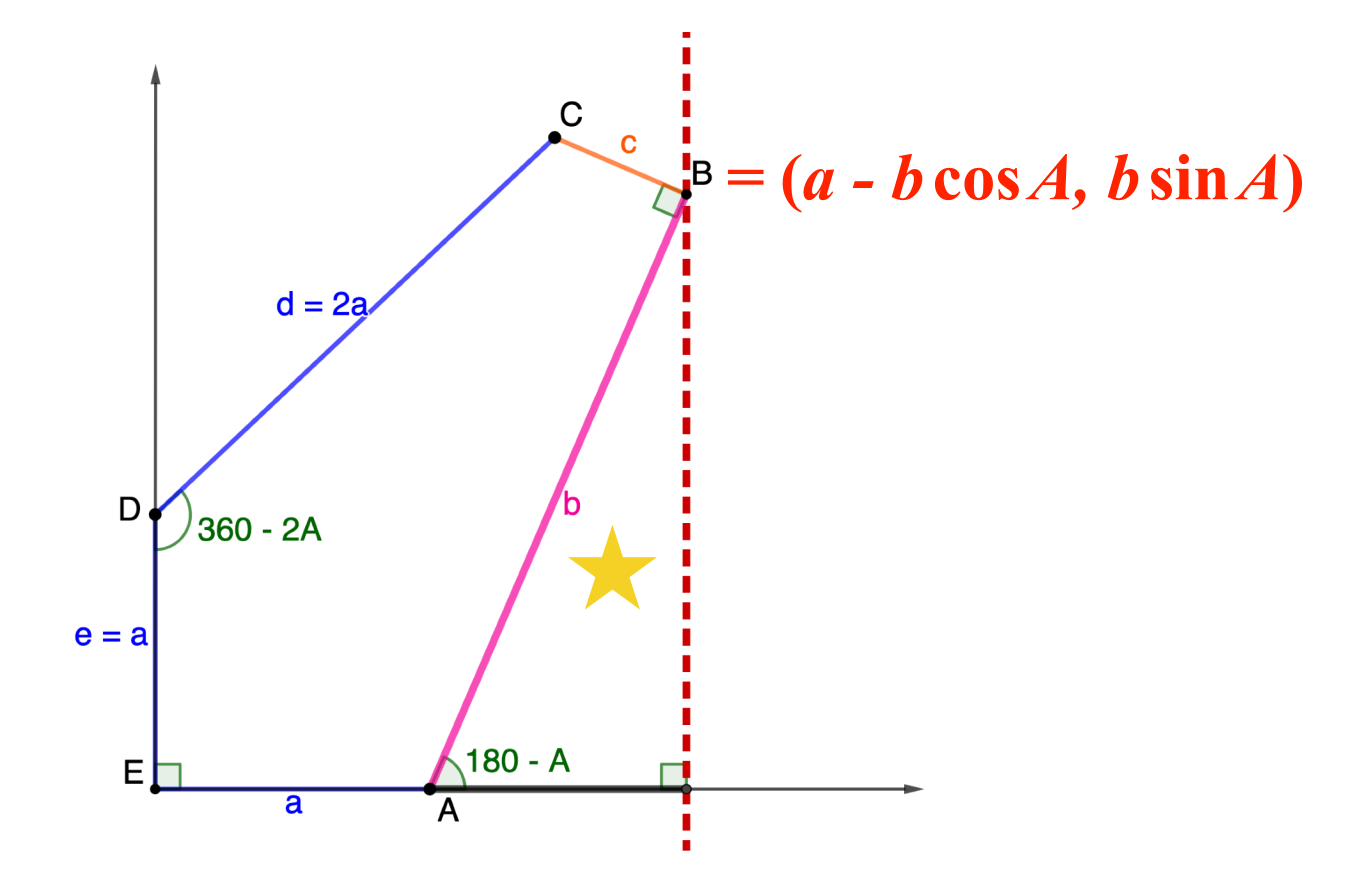
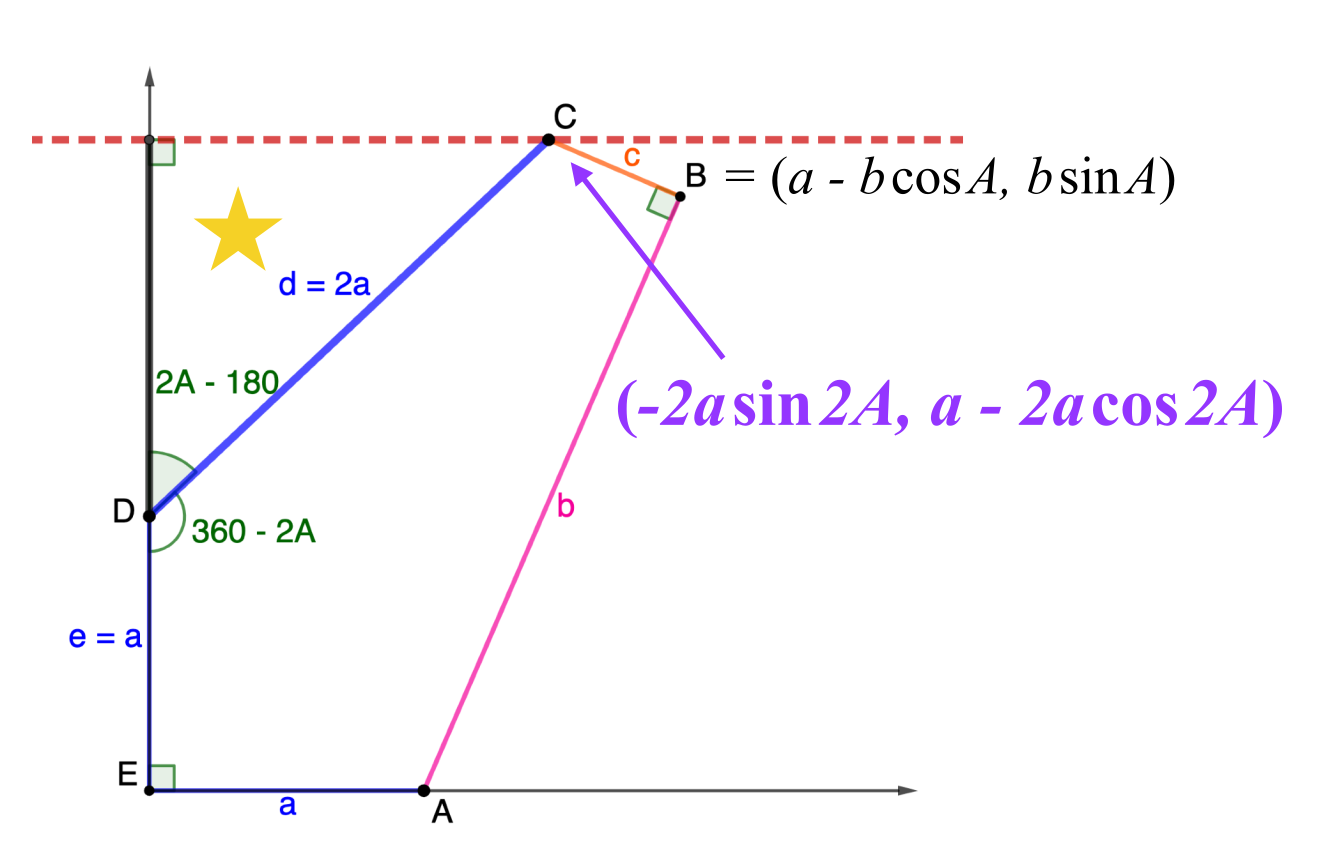
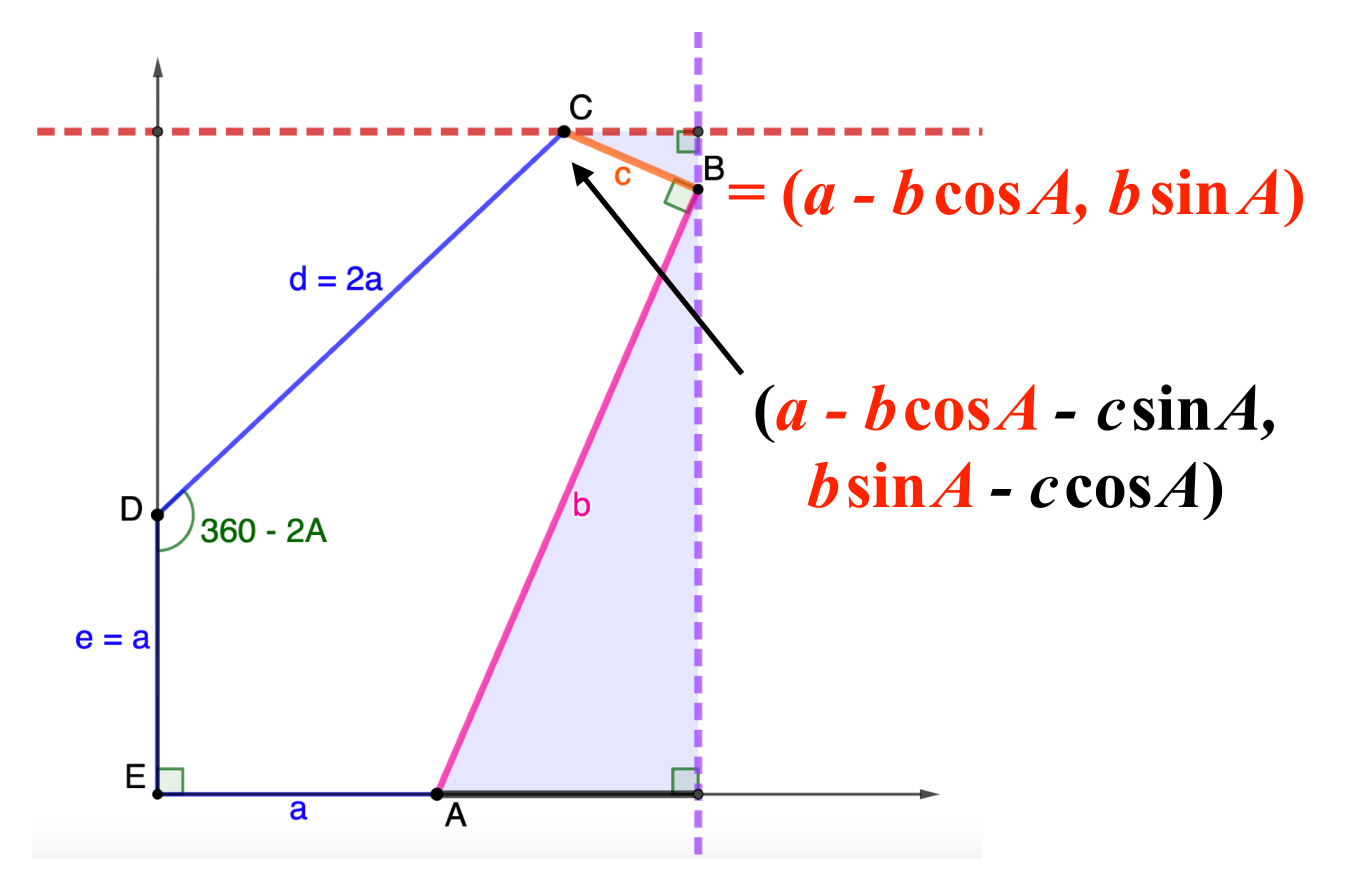
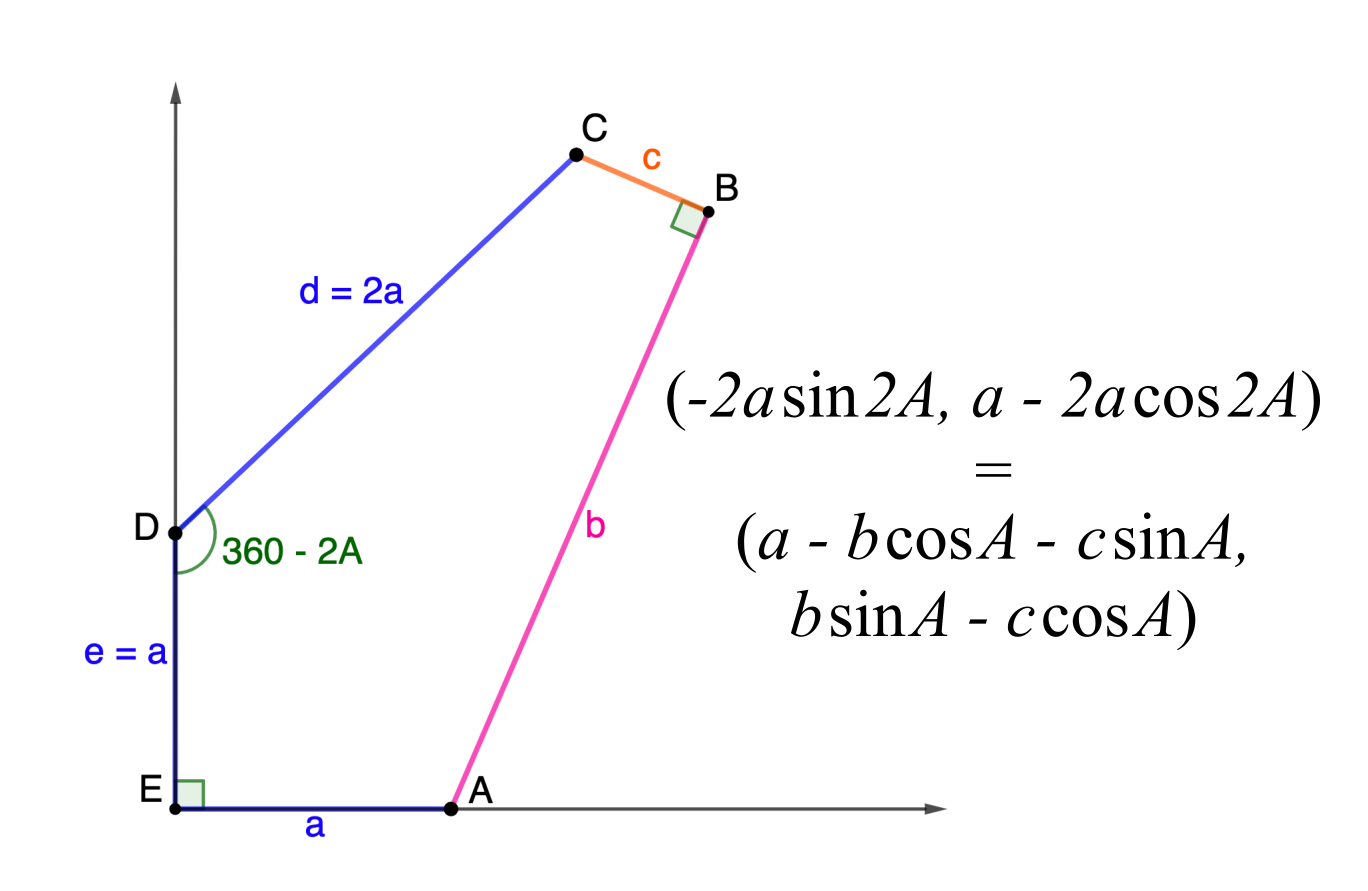
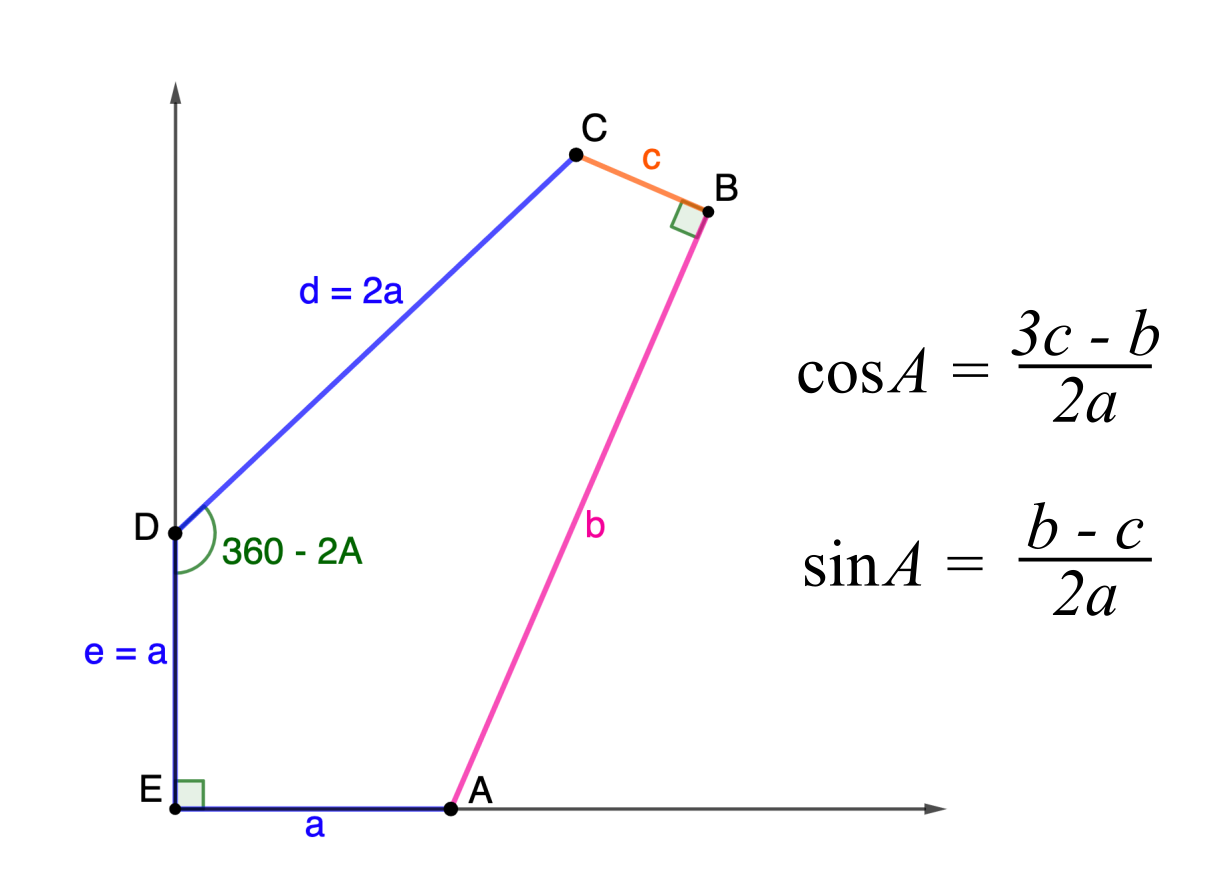
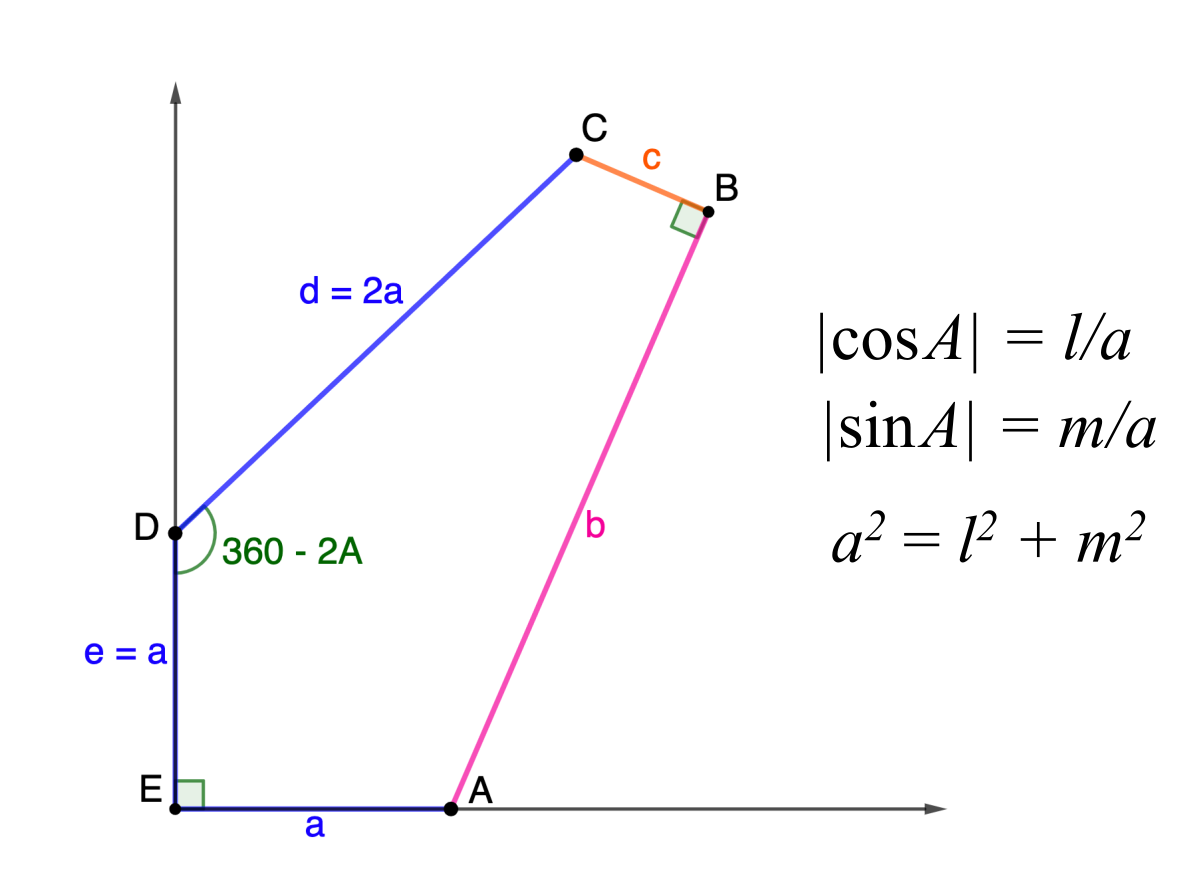
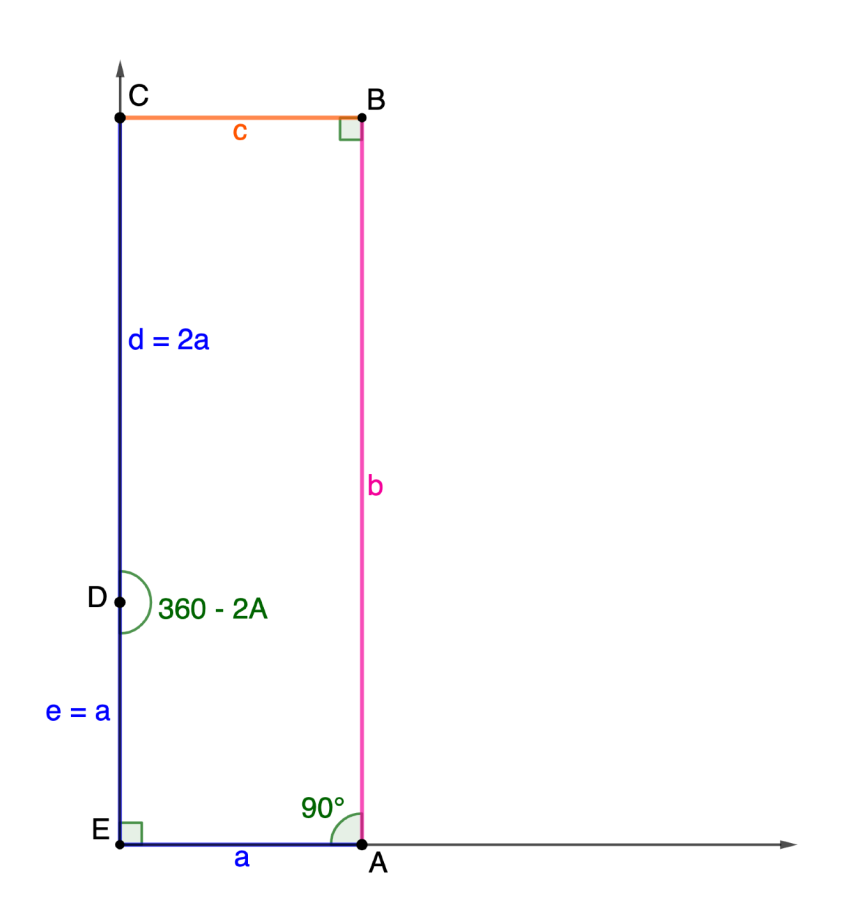
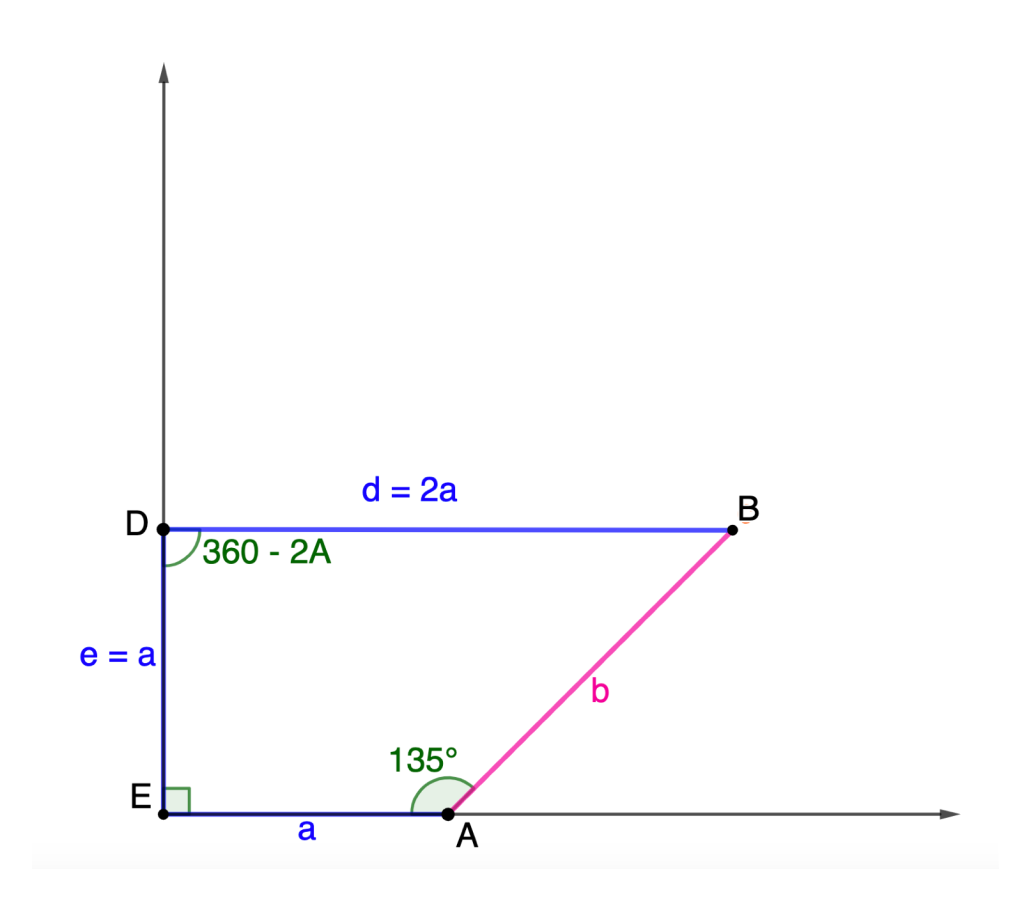
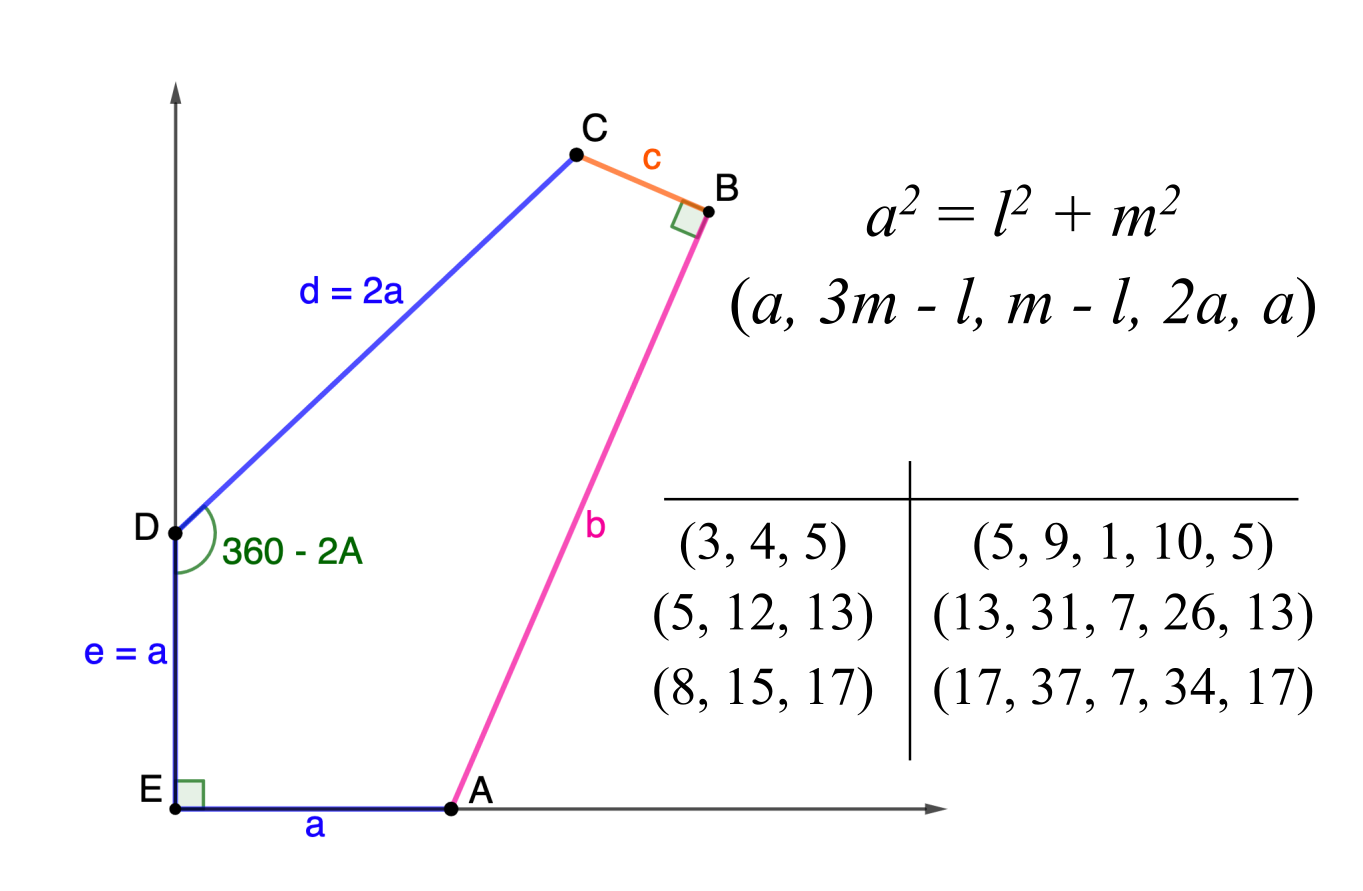
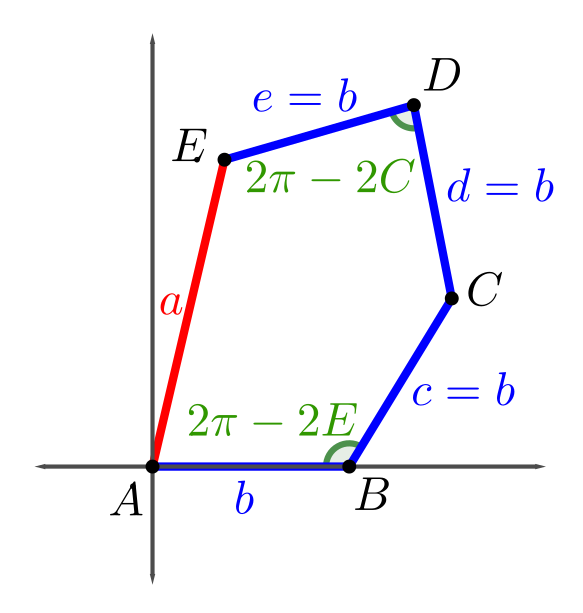
Family 7

The pintegons in Family 7 are those with sides $(a,b,b,b,b)$ for whole numbers $a$ and $b$ satisfying \[0 < a < (2\sqrt\phi)b.\]
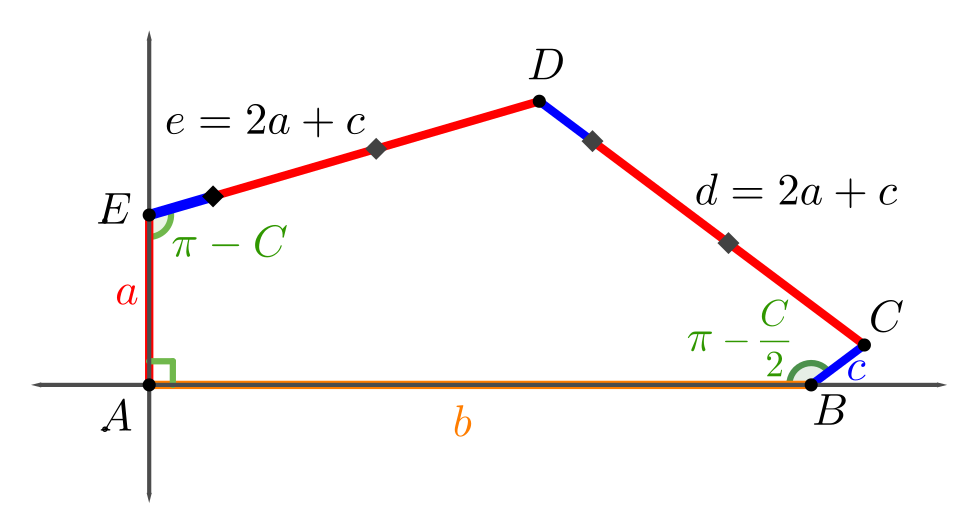
Family 11

\[\begin{split}C: & \,\left(b+(d-2a)\cos\frac{C}2, (d-2a)\sin\frac{C}2\right)\\
= & \,\left(d\left(\sin C + \cos\frac{C}2\right), a + d\left(\cos C − \sin\frac{C}2\right)\right) \end{split}\]

\[\begin{split}b & = d \sin 2\gamma + 2a \cos \gamma \\
2(d − 2a) \sin \gamma & = a + d \cos 2\gamma − 2a \sin \gamma \end{split}\]

\[\sin\gamma = \frac{a-d + \sqrt{a^2+3d^2}}{2d}\]

$H = a^2+3d^2$
\[ b = \frac{(\sqrt{H} + 3a − d)\sqrt{2(d − a)(\sqrt{H} + a)}}{2d} \]
$H = a^2+3d^2$
When is \[ \sqrt{2(d − a)(\sqrt{H} + a)} \] of the form \[ r + s\sqrt{H} \] for rational numbers $r$ and $s$?
When is $\sqrt{2(d − a)(\sqrt{H} + a)}$ of the form $ r + s\sqrt{H} $ for rational numbers $r$ and $s$?
Well, when is $\sqrt{n}$ of the form $r$ for a rational number $r$?
$\sqrt1, \sqrt2, \sqrt3, \sqrt4, \sqrt5, \sqrt6, \sqrt7, \sqrt8, \sqrt9, \sqrt{10}, \ldots$
When is $\sqrt{2(d − a)(\sqrt{H} + a)}$ of the form $ r + s\sqrt{H} $ for rational numbers $r$ and $s$?
Answer: Only when $2(d − a)(\sqrt{H} + a) = (j + k\sqrt{H})^2$ for $j$ and $k$ each either a whole number or half of an odd number. (Dedekind, 1871)

$H = a^2+3d^2$
Turns out $H$ must be a perfect square!
So there’s some $h$ such that $a^2 + 3d^2 = h^2.$
\[ b = \frac{(\sqrt{H} + 3a − d)\sqrt{2(d − a)(\sqrt{H} + a)}}{2d} \]

$H = a^2+3d^2$
Turns out $H$ must be a perfect square!
So there’s some $h$ such that $a^2 + 3d^2 = h^2.$
\[ b = \frac{(h + 3a − d)\sqrt{2(d − a)(h + a)}}{2d} \]

Integers $a, d, h,$ and $m$ so:
$a^2 + 3d^2 = h^2$
$2(d-a)(h+a) = m^2$
$h+3a-d > 0$
\[ b = \frac{(h+3a-d)\sqrt{2(d-a)(h + a)}}{2d} \]




studioinfinity.org/pintegons